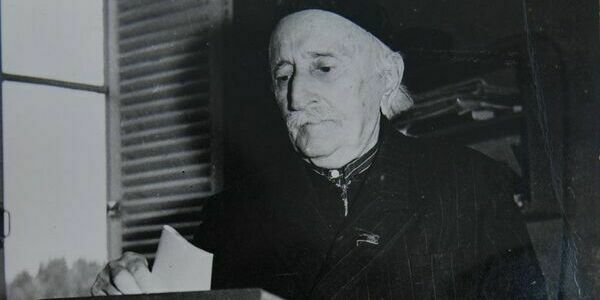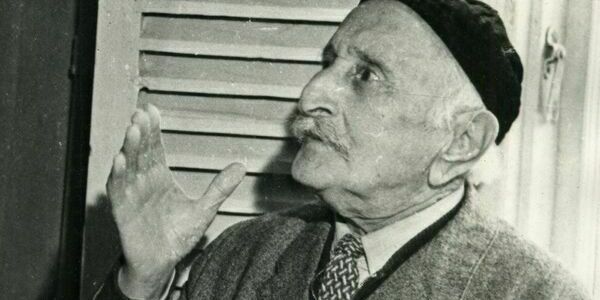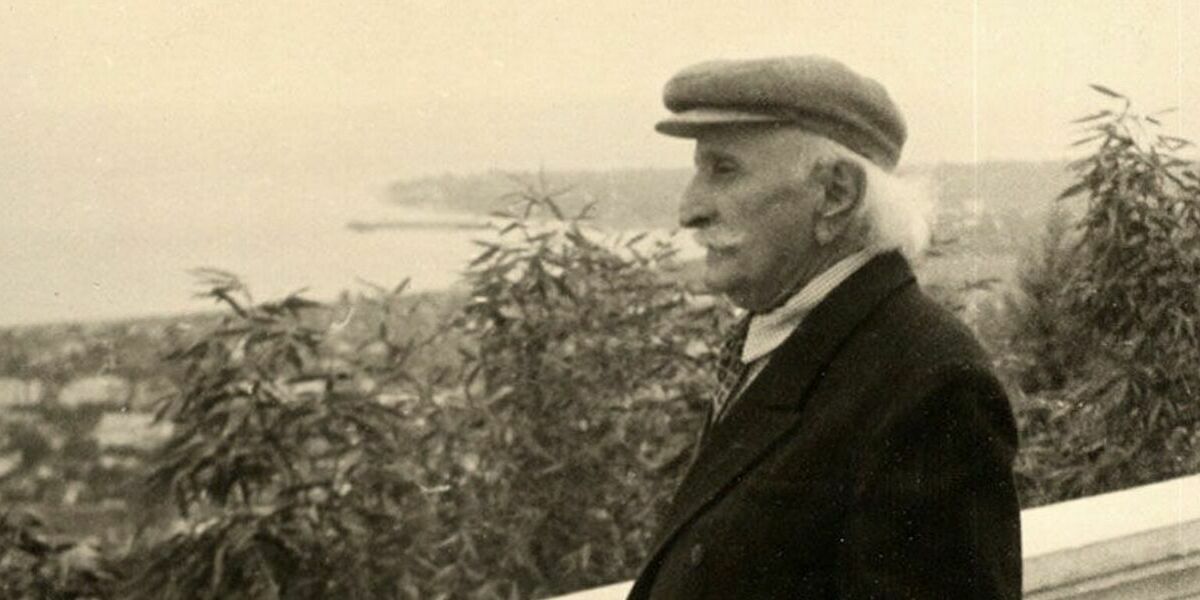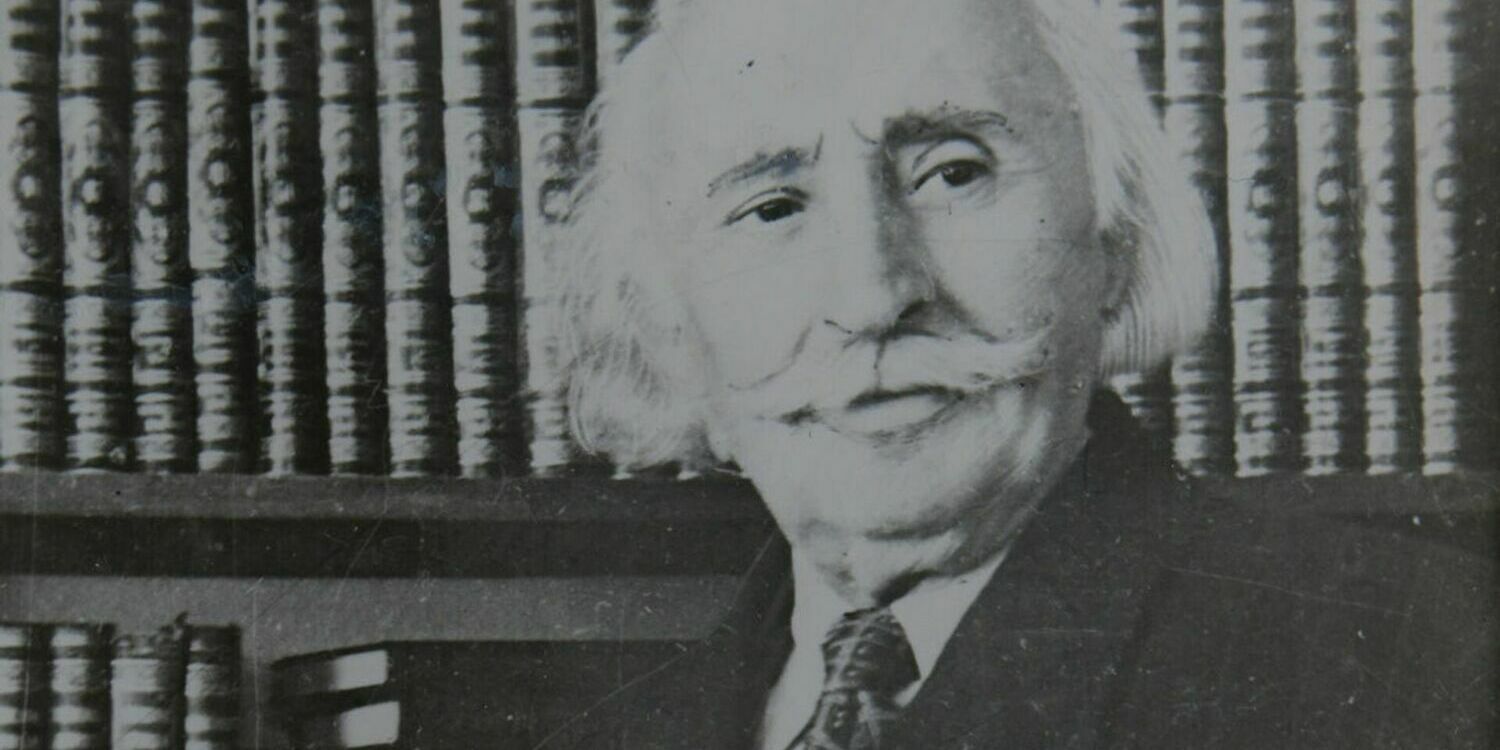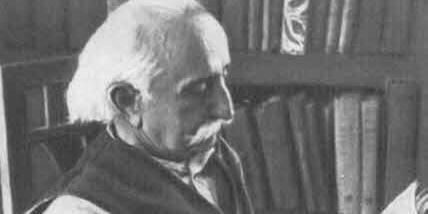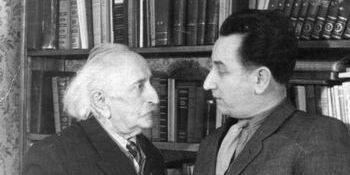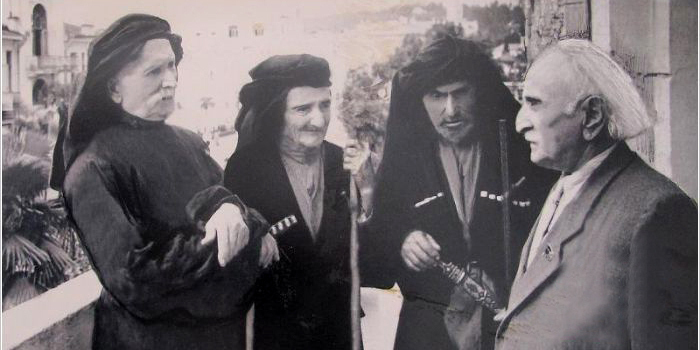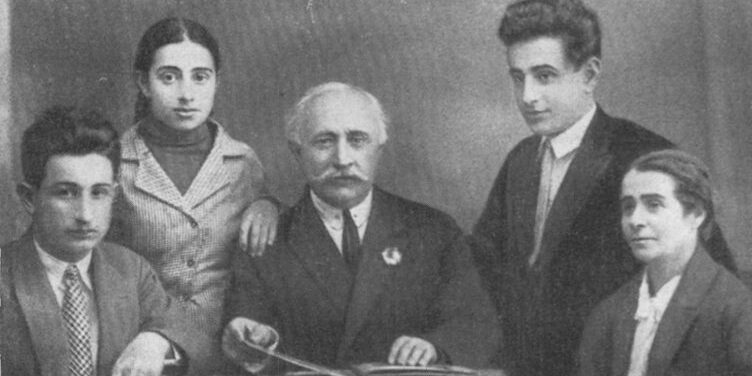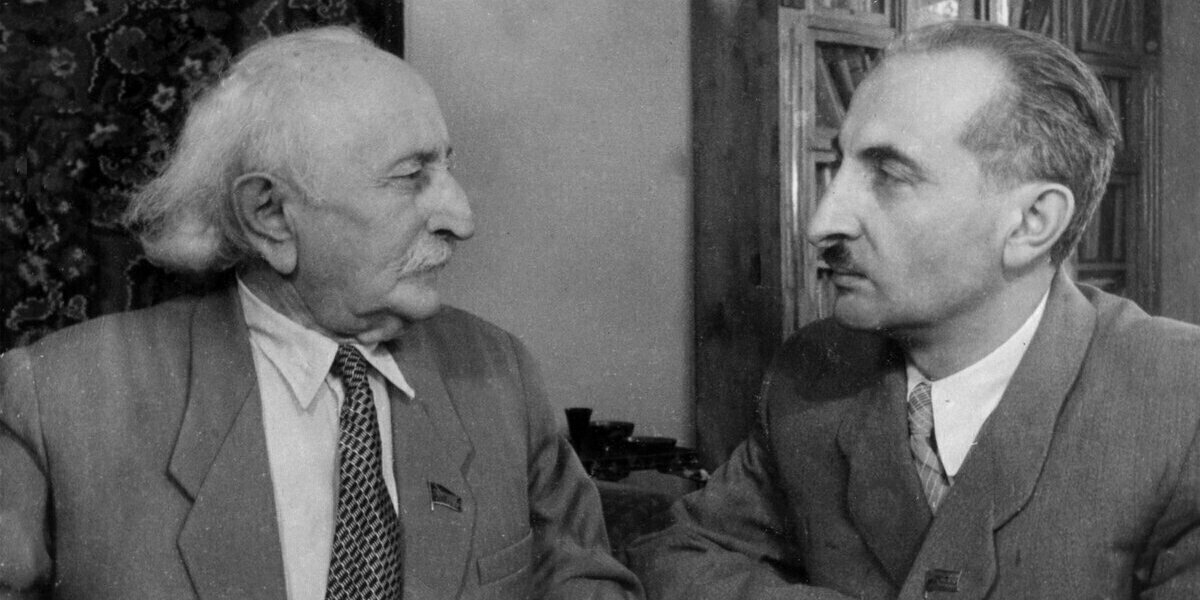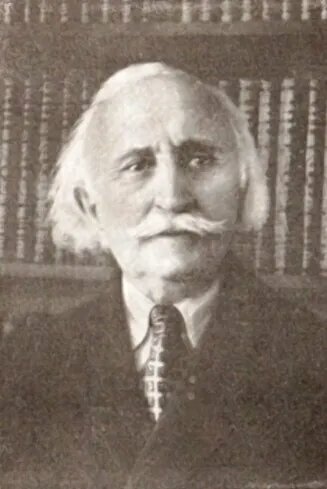
GULIA DMITRY IOSIFOVICH
21.02.1874 — 07.04.1960
Abkhaz writer, folk poet of the Abkhaz ASSR (1937).
The founder of Abkhaz written literature.
He was born in 1874 in a poor peasant family.
In 1877, during the Russo-Turkish war, the Gulia family was deported to Turkey, but in 1878 his father managed to return the family to their homeland, Abkhazia.
He finished 2 classes of gymnasium in Sukhumi. In 1890, he entered the teacher's seminary in Gori, but did not finish his education.
He worked as a translator for the administration chief of Sukhumi district.
In 1892, together with K.D. Machavariani, he compiled an Abkhaz alphabet based on Cyrillic.
From 1904 to 1921, he worked as a teacher, teaching Russian language. Later, Gulia passed exams externally and received official permission to teach in secondary educational institutions.
From 1919, he was the editor of the first Abkhaz newspaper "Apsny" ("Abkhazia").
In 1921, he organized and led the first Abkhaz theater troupe.
From 1924 to 1926, he taught Abkhaz language at Tbilisi State University.
In 1927, he became the head of the Academy of Abkhaz Language and Literature.
From 1930 to 1960, he was a researcher at the Abkhaz Institute of Language and Literature (now D. I. Gulia Abkhaz Institute of Humanities Research of the Academy of Sciences of Abkhazia).
In 1937, he received a scientific degree of candidate of historical sciences. Gulia was critical of the nationalist policies of the Georgian SSR in Abkhazia.
He was included in the list of "enemies of the people."
He died on April 7, 1960.
Works by Gulia 1900-1910.
Poetry:
- «Springtime»,
- «Moscow»,
- «Human being»,
- «In the old days»,
- «Intelligence, knowledge, power»,
- «So, my book...»,
- «A snake, a swallow and a beetle»
- «The word of the risen man»,
- «Happy is the one who can say everything...»
Satirical poems:
- «Gambler»
- «Khodzhan the Big»,
- «“Lovely” creature»,
- «Two couldn't walk and the third couldn't catch up with them»
Poems:
- «Abryskil» (1910)
- «The Yeshsou gun» (1910)
The works of the following years:
- «Poetry and ditties», 1912 г
- poem «A girl and a guy texting», 1913
- story «Under the strange sky», 1918
- novel «Kamacic», 1940
- poem «My hearth», 1956
More than 100 poems, including:
- «The Reindeer»,
- «My garden»,
- «Our Caucasus»
- «My homeland»,
- «The Great Taras»,
- «Oh, what an honoured guest he is!»
Research papers:
- «The history of Abkhazia». Vol. I, 1925,
- «Hunting deities and hunting language among Abkhazians. (To the ethnography of Abkhazia)», 1926,
- «Materials on Abkhazian grammar (Additions and explanations to P. K. Uslar's book “The Abkhazian language”)», 1927,
- «Терминология по литературе и языковедению (русско-абхазский и абхазско-русский)», 1930,
- «Concise Abkhazian Spelling Dictionary», 1932,
- «Native Speech. Reading book for the second year of study», 1933,
- the first «Abkhazian calendar», 1920.
Gulia translated into Abkhazian the Gospel, as well as a number of works by Alexander Pushkin, Mikhail Lermontov, T.G. Shevchenko, N.M. Baratashvili, A.R. Tsereteli, and Sh. Rustaveli's poem «Knight in a Leopard's Skin».
